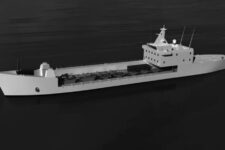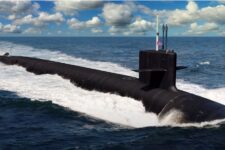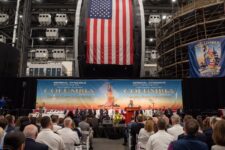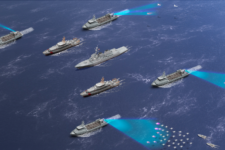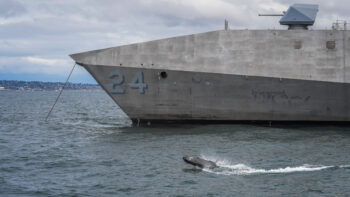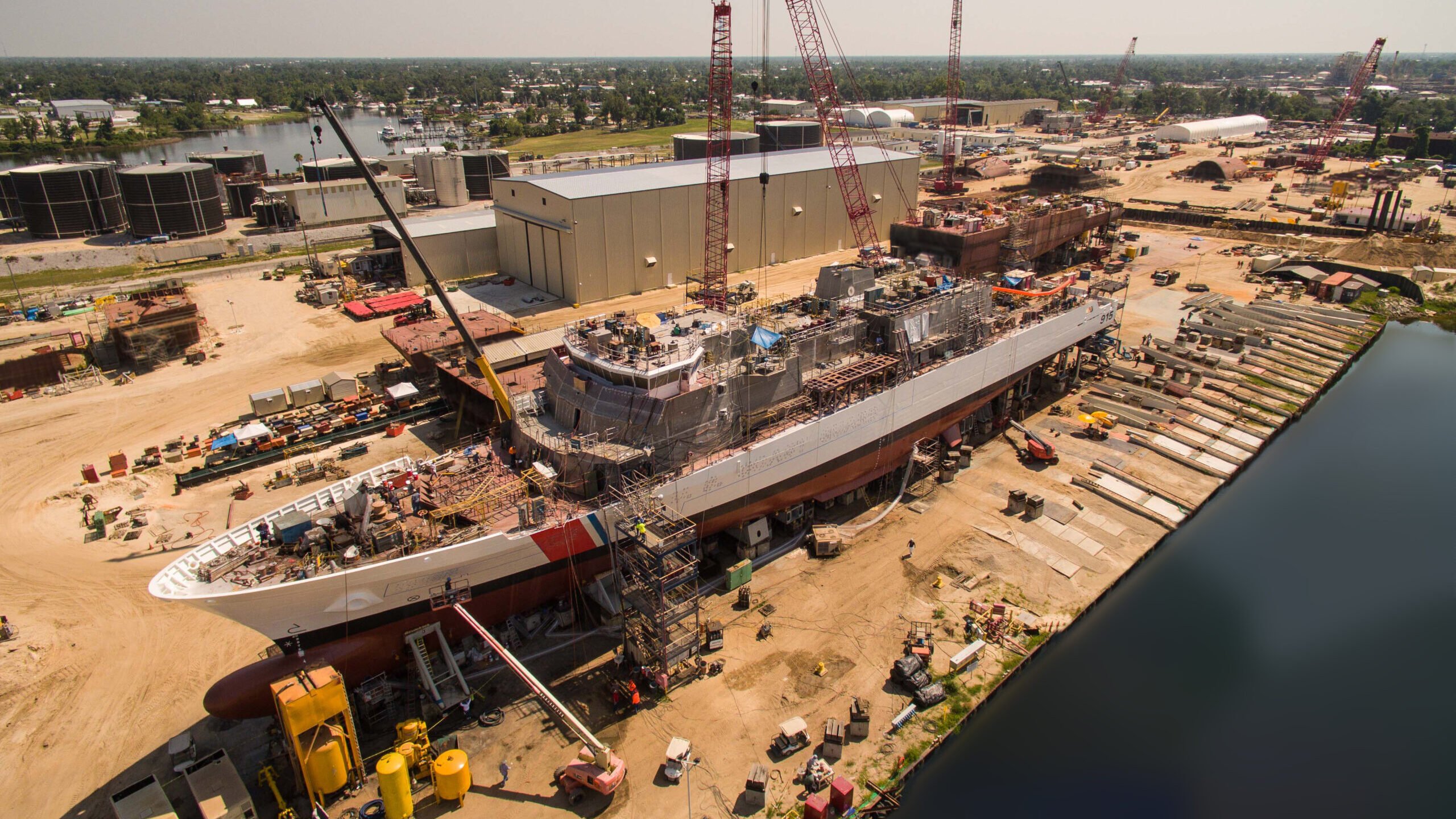
An Offshore Patrol Cutter still under construction sits at Eastern Shipbuilding’s shipyard. (Photo courtesy of Eastern Shipbuilding.)
WASHINGTON — Eastern Shipbuilding Group is escalating its ongoing dispute with the US Coast Guard over a $3.3 billion shipbuilding contract, opting to pursue its case in court rather than protesting through a government watchdog.
“The federal procurement process is designed to be fair and transparent,” Joey D’Isernia, the company’s president said in a statement to Breaking Defense on Wednesday night. “Ordinarily, the government discloses reasonable justification for its award decisions to the attorneys representing the parties in a protest. The government has declined to voluntarily disclose the information that might offer that justification. As a result, we are seeking the information and justification through a different legal pathway.”
In response to questions from Breaking Defense, a company spokesperson confirmed ESG will pursue a case in the US Court of Federal Claims “to seek the disclosure materials that have been withheld by the USCG in the GAO protest.”
At issue is the second stage of the Coast Guard’s Offshore Patrol Cutter program, a highly-contested shipbuilding contract that went to Austal USA in late June. The program includes construction for up to 11 Heritage-class vessels and is one of the service’s highest acquisition priorities, alongside the Polar Security Cutter. The new cutters will be core to the the fleet and tasked with a variety of missions both on the high seas and coastal areas.
Not long after Austal was declared the winner, Eastern Shipbuilding Group, a Florida-based company that previously won work on the OPC program, filed a bid protest with GAO, citing an “unfair competitive advantage and conflict” among a list of other issues. Taking the Coast Guard to the Court of Federal Claims, the federal court that deals with monetary lawsuits against the government, is the company’s latest effort to find a way to overturn the Coast Guard’s decision.
The Court of Federal Claims “is not an appeal, but a new proceeding challenging the agency’s procurement award decision, independent of the GAO protest (though GAO protest documents will become part of the record at the court),” the company spokesperson told Breaking Defense.
When asked to comment on Eastern Shipbuilding’s statements, a Coast Guard spokesperson told Breaking Defense, “The Coast Guard is focused on proceeding with Austal USA on detail and design work to support future production of OPCs. The Coast Guard does not speculate on potential litigation.”
The escalation from GAO’s bid protest process to the courts is significant. GAO is a respected arbiter among both federal agencies and industry, but it cannot compel the executive branch to act. The reason most agencies will cooperate with GAO on a voluntary basis is because the watchdog also receives a great deal of respect from Congress. (The Florida delegation has already shown it is willing to go to the mat for Eastern Shipbuilding on this contract.)
Bringing its case to federal court has several implications for both the Coast Guard and Eastern Shipbuilding. The first is that, no matter what happens, both the company and service will be bound to abide by the court’s rulings — a decision-making power GAO lacks.
Another issue is optics: industry often pursues GAO bid protests rather than lawsuits because they are more discrete and usually lack the attention — and potential bad feelings — associated with suing the customer.
Lastly, the shipbuilding program itself could face schedule problems as a result of the lawsuit. Most GAO bid protests only take a few months to resolve and program offices know they may need to stop work on a contract while the protest is adjudicated.
Lawsuits, on the other hand, can take much longer depending on the case’s details, the court’s docket and the need to allow either party to exhaust the appeals process. And, depending on what remedies ESG seeks, the courts could impose limitations on the Coast Guard’s ability to advance construction while the litigation is underway.
Anduril, South Korean shipbuilder HD Hyundai announce new partnership for autonomous systems
US Navy Secretary Carlos Del Toro has praised South Korean shipbuilders such as HD Hyundai at recent events, encouraging more participation with US industry.

